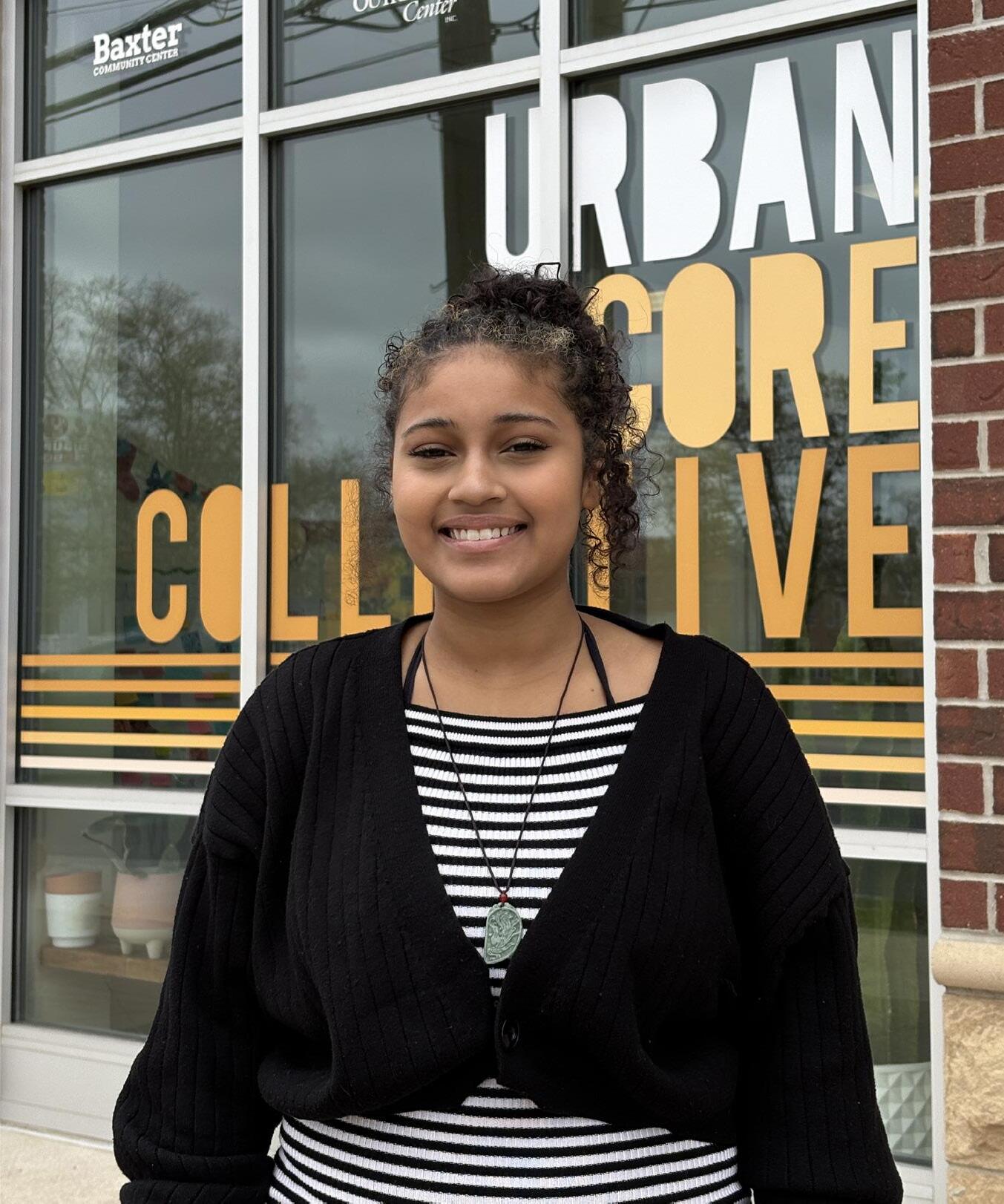
3 minute read
Student Association for Leadership and Transformation
Pictured: Anchal Singh, student organizer
All students deserve the opportunity to thrive and learn. Here is one way they are advocating for themselves.
At Student Association for Leadership and Transformation, or SALT, student voices are heard loud and clear. A program of Urban Core Collective, SALT helps student leaders identify issues in their schools and prepares them to influence decision makers to ensure schools and education systems are responsive to their needs and priorities. Twice a month, youth from area high schools facilitate meetings, discuss priorities, share experiences and create strategies to hold decision makers accountable on the issues that matter to them most. So far, their priorities have included access to nutritious and culturally diverse foods, mental and physical health, safety and teacher pay. The students have already seen their influence at work, gaining favor from decision makers to meet demands and acknowledge their lived experience.
Grand Rapids Community Foundation supports Urban Core Collective’s organizing and community-led advocacy through a grant partnership as they develop grassroots leaders and design structures that support those leaders.
Anchal Singh, a high school senior at Success Virtual Learning and SALT student organizer, and Betsaida Valdivia, UCC youth education organizer, recently shared with Grace Swanson, Community Foundation strategic communications specialist, about their work and vision for our community.
GRACE: How does SALT fit into UCC’s education justice work?
BETSAIDA: SALT is a space for youth working towards making [education justice] even more youth-led than it currently is. What’s unique about SALT is it’s really about shaping youth leaders that hold these different systems and experiences accountable. It also creates a space for them to be part of the co-creative process.
GRACE: Why is it important for teens to speak out about their experiences?
ANCHAL: If we don’t know a problem, we can’t solve it. Teens’ experiences are really important in decision-making, because we share these same spaces [with decision makers]. Even though we share these same spaces, we lack that ability to kind of shape how they look. Just because we’re not involved.
BETSAIDA: I mean, [students] being the main people that are being impacted, that’s really what a lot of grassroots organizing is about. It’s centering those who are most impacted by the issue because their experience, their challenges, their creativity, their backgrounds, all of that is so necessary.
GRACE: What’s your favorite part of SALT?
ANCHAL: My favorite part of being involved in SALT is seeing new students evolve. They are open to learning new skills and we watch them navigate difficult topics. It’s really exciting to watch all the students come out of their shells and push themselves out of their comfort zones.
GRACE: What have you learned about through your experience in SALT?
ANCHAL: I’ve grown so much . . . I’ll always care about my education, SALT kind of helped me see that. SALT helped me learn and navigate through my career path. Now I want to become a teacher. I’d always kind of known I wanted to be in education. But being in SALT kind of solidified that for me. That’s what I should do, that’s the career path that I should take because that is what I truly care about.
Learn more about SALT's impact at urbancorecollective.org/education-justice.






